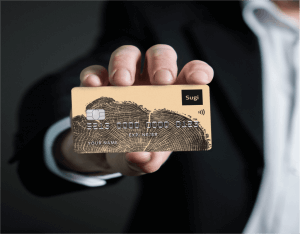So you’ve bought your cryptocurrency, what’s next? Unlike fiat currency, cryptocurrency doesn’t have real-world institutions that keep and protect your money. And storing it on the crypto exchange may not be a good idea, especially with incidences of exchanges being hacked or turning out to be a scam. Thankfully, innovative people have come up with brilliant ideas to enable crypto users store their coins safely.
In this article, we’ll discuss what crypto wallets are, types of crypto wallets, and what you should consider before investing in one, and more.
What Is A Cryptocurrency Wallet?
A cryptocurrency wallet is a device, a physical medium, or a software program that stores private and public keys and allows users to transfer, receive, or spend their cryptocurrency. You don’t walk around holding your fiat money, do you? You store it in a bank or some type of wallet to protect it. That’s the same principle with crypto wallets.
How Do Cryptocurrency wallets Work?
Many people don’t understand how cryptocurrency wallets work mainly because they try to associate them with traditional wallets. Unlike “real world” wallets, crypto wallets don’t store crypto ‘money.’ In fact, cryptocurrencies are not stored in any physical shape or form, so they can’t technically be stored in any single location. What exists is records of transactions stored in a public ledger or – the blockchain.

What crypto wallets store is the public and private keys- which are used to access your public cryptocurrency address and transaction signatures.
Both of these keys are just a combination of random numbers and letters. To better understand public and private keys, we can compare them to our bank account. The public key is like your bank account number – people who know it can send you money. But the private key is like your pin code or password – you’re the only one who knows it. The same logic applies to crypto wallets – people can send you cryptocurrencies, but you will need to use your passcode to access it.
When someone sends you, let’s say, Bitcoin, they are essentially transferring ownership of the coins to your wallet’s address.
For you to access those coins and spend, store or transfer them to somebody else, your wallet’s private key should be compatible with the public address the coins are assigned to. If the two keys match, the balance in your wallet increases, while the sender’s decreases. There is no real exchange of the currency. The transaction exists in the form of “a transaction on the public ledger” and a change in the balance of both parties.
What are the Types of Cryptocurrency Wallets?
There are several types of crypto wallets that enable you to store and access your crypto coins. ‘Type’ here refers to the medium that the wallet is built on. This could be software, hardware, or paper. Software wallets can be on desktop, web, or mobile
☑️Desktop Wallets: These wallets are usually downloaded and installed on your computer. From then on, they are only accessible from that particular computer. By broad definition, desktop wallets provide more security than their online and mobile counterparts because they don’t rely on third parties for data. However, they are vulnerable to hackers or malware. But these wallets are a good solution for traders of small crypto amounts.
☑️Web Wallets: These wallets are cloud-based and store your private keys on a server. They can be accessed from any internet-enabled device from any location. They are controlled by a third party, too, which renders them susceptible to hacking and theft.
Different web wallet providers provide different features, some of which can link to mobile and desktop features and sync your addresses across your devices.
☑️Mobile Wallets: These wallets run as an app on your phone. They are great solutions for active users who interact with their crypto coins often. They can be used to pay for goods at e-stores or physical stores by allowing you to scan a QR code.
Since any crypto user requires access to the blockchain network – which is large enough, mobile wallets use a simpler verification technology. This means they utilize small subsections of the blockchain by relying on certain trusted nodes to ensure they get the correct information.
While mobile wallets provide much more convenience, they are also more prone to hacking. And if someone gains entry to your phone, you could lose control of your funds.
☑️Hardware Wallet: these wallets store your private keys on a hardware device like a USB. Hardware wallets are by far the most secure of any wallet because they are immune from malware attacks, hacking, and funds cannot be transferred out of the device in plaintext. Some providers even offer hardware wallets with a screen that can verify and display important details, like a recovery phrase and details of the transaction you wish to make.
Depending on the provider, hardware wallets can be compatible with several web interfaces and support several currencies. You can easily make a transaction by simply plugging the device to an internet-enabled device, enter your passcode, and carrying out your transaction.
☑️Paper Wallet: These wallets are essentially printouts containing a public and private key. They are usually printed as QR codes, meaning you can quickly scan them and transfer them to a software wallet to carry out a transaction. This process is known as ‘sweeping’ and can also involve manually entering the keys on the device. A paper wallet can also be a piece of software that can generate the keys, which are then printed.
Just like hardware wallets, paper wallets are immune to hacking and malware attacks. Still, you need to take certain precautions, like ensuring no one is watching you when you’re generating a paper wallet and using a printer that is not connected to the internet. Also, you need to keep your paper wallet in a dry and safe place to avoid exposure to water and wear and tear. You could even keep it in a sealed plastic bag or laminate it and store it in a safety deposit box.
How Secure Are Crypto Wallets?
The level of security of a wallet depends on its type and the service provider. Web-based wallets are more vulnerable since hackers could gain access and steal your coins. On the other hand, offline wallets are safer because they are not connected to the internet and don’t rely on a third party.

The most important thing to remember is regardless of the wallet you’re using, whether online or offline based, your private key is what matters. You lose the private key, you lose your funds. Bear in mind that cryptocurrency transactions are irreversible, so utmost care is necessary.
That said, here are some measures you can take to secure your online wallet:
☑️Back up your wallet. This simply means don’t store everything online. Store only small, daily-use amounts online. Store the rest away in a highly secure environment, like a paper or hardware wallet. Offline storage will ensure your currency is safe in case of computer failure or virus attacks.
☑️Update software. Hackers are usually smart people, and they keep devising new ways to infiltrate security software. So what do you do? You keep up with them. Ensure your software has the latest security enforcements. This applies to both your wallet software and computer, or mobile software.
☑️Add layers of security. When it comes to online wallets, the more the security layers, the safer they are. This can mean setting long and complicated passwords. Use wallets that enable multi-factor authentication or other extra pin code requirements. You could also choose wallets that offer multi-signature transactions – meaning another user or users must approve before any transaction takes place.
Can You Store All Your Cryptocurrencies In A Single Wallet?
Some wallet providers design wallets dedicated to the storage of only type of cryptocurrency. For instance, Armory and Copay are designed to store only Bitcoin. But other providers allow you to keep a variety of cryptocurrencies. Instead of purchasing a wallet that only supports one currency, you may find it more convenient to purchase or signup one that allows you to store, access, and spend your coins from the same location.
Are Crypto Wallets Anonymous?
Just like how your identity on a cryptocurrency blockchain is pseudonymous, i.e., recognizable by your public address, so are crypto-wallets. Your actual identity will not be there, but your wallet address could be traced back to you.
In addition, to prevent illegal use of cryptos, most exchanges will require your full identity – which means they know your identity is linked to your wallet transactions.
Which Is The Best Cryptocurrency Wallet?
New crypto wallets are always being introduced. Your decision to pick a specific crypto wallet depends on how you intend to use it. Ask yourself these questions:
![]() Do you need your cryptos for everyday use or for holding as an investment?
Do you need your cryptos for everyday use or for holding as an investment?
![]() Do you need to access your wallet from anywhere or just at home?
Do you need to access your wallet from anywhere or just at home?
![]() Do you plan to use and/or trade several currencies or just one?
Do you plan to use and/or trade several currencies or just one?
![]() What is the security track record of your considered wallet?
What is the security track record of your considered wallet?
![]() What is the reputation of the manufacturer?
What is the reputation of the manufacturer?
With that, here are some of the tried and tested crypto wallets in the market: Atomic Wallet, Ledger Nano, Trezor, Armory, Mycelium, Bread Wallet, Copay, Electrum, Exodus, and Jaxx.
Conclusion
By now, you should have a pretty good idea of what a wallet is, how it works, and probably identified your preferred wallet choice. Remember, the type of wallet you choose should respond to your needs – be it ease of transfer or security from hacking attacks.





